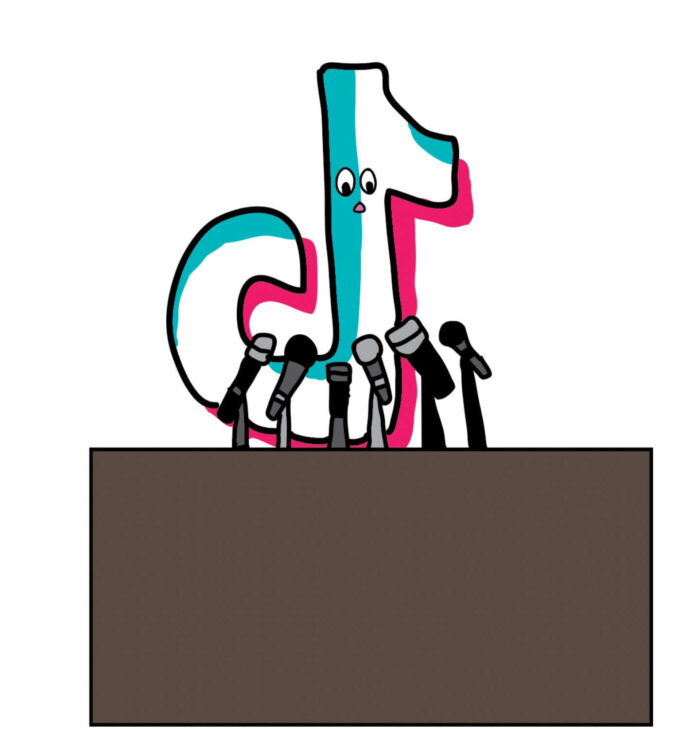When I first heard about the news of TikTok being taken down, I reacted like every other worker who would be facing layoff: horrified. This was my take on the issue back in 2020 when we still had Trump as president and he was considering a ban then. Now being turned towards potential unemployment yet again, countless other content creators and I on the platform can only react with one feeling that would be proper enough to prepare for the potential disaster: numbness.
As a Gen Z TikTok user and content creator, the countless thirst trap clip edits of Shou Zi Chew, the CEO of TikTok, that kept popping up through my For You Page were how I found out about the ban happening. After laughing through them, my curiosity about the full video that the clips were from took me to the Senate March 23rd trial. Here’s my summary of this ordeal: the trial left no stone unturned as both the Republican and Democratic parties came to a rare agreement on the topic of cyber security. Congress requested that Chew make the data available to the U.S. government in the process of proving that there are no ties between Bytedance and the Chinese government.
Among Democrats and Republicans, questions and comments arose about the appropriate age for a young person to get a TikTok account, how the “platform should be banned,” and that the app “was made to aggressively addict kids in the name of profits.”
Out of the addresses delivered, a major point that was repeatedly pressed on to Chew was the dooming effect of TikTok acting as a plague on the well-being of teenagers and children. In an immediate response, a TikTok user posted a video of the questioning process, mocking Congress for the lack of understanding of how TikTok works. The video is titled: “there needs to be an age limit in congress.” With an unconvinced reaction from civilians, Congress shows a very poor grasp of how internet platforms and TikTok function prior to the hearing as well as making irrelevant ties back to social security. The public media even took this statement in youth health awareness as a main point to attack Congress and skew the public to protect TikTok. In turn, this amplified people’s distrust of Congress even more:
“’It’s just a TikTok ban.’ Actually it’s called ‘The Restrict Act’ & it’s going to allow the government to put you in jail for up to 20 years for visiting the ‘wrong’ websites,” said Twitter User @ShannenJPEG.
On a personal level, I have grown immense respect for Chew for the way that he turned the situation into a marketing opportunity for TikTok and himself. Being such a low-profile individual beforehand, the timing of this enforced trial wouldn’t have been a planned ordeal for his own goals. In a way, Chew’s crisis aversion tactic has inspired content creators like myself to handle this potential unemployment issue with the composure Chew displays as well.
I’ve seen that creators have taken two directions: leaving or supporting. Yet no matter what creators have chosen to do, every direction taken just shows that this ban for the sake of cyber security might be futile: there will just be another replacement for TikTok if the app were to leave. Let me give an example: since the hearings ended, verified users have been continuously paid to promote smaller short video platform applications, such as the video and photo-sharing social media app called Lemon8.
In this day and age of the global market, it is hard to find a single software that is solely nationally based. Concluding that note, laying off creators from one platform will only lead to endorsements for all the other apps in a line filled with new and unknown factors that could involve harm done to young users. It’s rather silly for the ban to detract from the main goal of social security to tackle internet use in youth while also harming content creators who have spent millions of hours editing, posting and sharing their whole life on the platform. At that point, you might as well restrict all users below eighteen to daily screen time — if that was at all the goal, to begin with.
Contact Lucy Yang at jyang3@oxy.edu.
![]()































